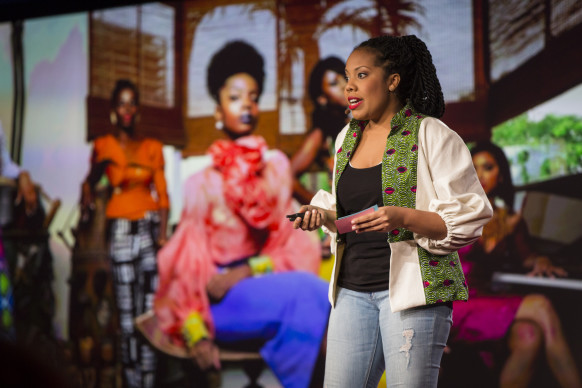
25 Feb TED Fellows Teach Silicon Valley a Lesson In Diversity
There are any number of reasons why TED is different than your typical tech conference.
There’s the $8,500 per ticket price tag, for one thing, and the star-studded list of attendees, for another. There’s the confidentiality agreement that prevents me from writing about my run-ins with those stars (even though I really wish I could, you guys), and the fact that no personal screens are allowed in the main event hall—yes, even in 2016. And there’s the event space itself, a singular glass-walled building resting on the bank of Vancouver Harbor, overlooking an array of snow-capped mountains, draped in a milky low-hanging fog.
But perhaps the most notable difference—the difference that makes TED special—is its diversity, specifically the diversity of the presenters on stage. The TED Fellows, the hand-picked innovators who kicked off the five-day conference on Monday as they do every year, come from an array of countries—from Ghana to Kyrgyzstan—and an array of cultural backgrounds—from American Muslim to Mohegan. This year, 50 percent of TED Fellows are women and 50 percent are men, all representing a broad spectrum of human experiences. Taken together, they are a snapshot of the best of what the world has to offer.
The Pipeline Is Not the Problem
But they are also, unfortunately, a snapshot of the communities that the largely white, male tech industry too often overlooks. If ever there were proof that tech’s diversity problem is not, in fact, the result of an inadequate supply of diverse talent, TED would be it. In just a few hours Monday afternoon, the TED Fellows proved that this world is positively busting at the seams with talent. To be sure, TED casts a wide net to find these people, but in doing so, it proves to the tech, entertainment, and political power players who flock to the conference each year why diversity is so crucial to the development of big ideas.
It’s crucial because, were it not for the fact that he lived under an oppressive government regime in Kyrgyzstan, TED Fellows like Bektour Iskender may never have founded Kloop Media, a blog that encourages Kyrgyz youths to become activist journalists.
It’s crucial because had someone like TED Fellow Keolu Fox not been born a native Hawaiian, he may never have discovered that indigenous groups are drastically underrepresented in the field of genetics. And he may never have started working on ways to bring more indigenous populations into directing their own genetics research using mobile technology.
It’s crucial because had Nicole Amarteifio been born a white Manhattanite instead of a black Ghanaian, she would likely never have been inspired to create An African City, an African answer to Sex & the City. And so, she may never have had a chance to expose viewers to a new side of Africa, one that includes vibrators and high fashion, not just war and poverty.
But what’s most impressive about the diversity of people and ideas among the TED Fellows is that you don’t get the sense that any of them are on the stage because they’re checking a box. Instead, they’ve earned their places on stage by dreaming outside of the box.


Adam Leonard
Posted at 11:55h, 25 FebruaryAdam Leonard liked this on Facebook.
Mercy Nzeakor
Posted at 14:26h, 25 FebruaryMercy Nzeakor liked this on Facebook.